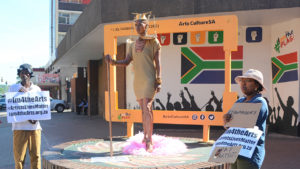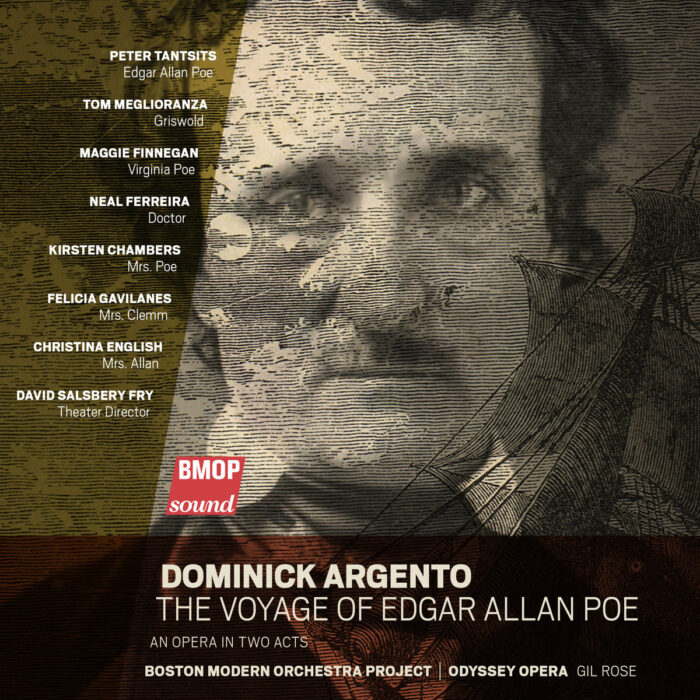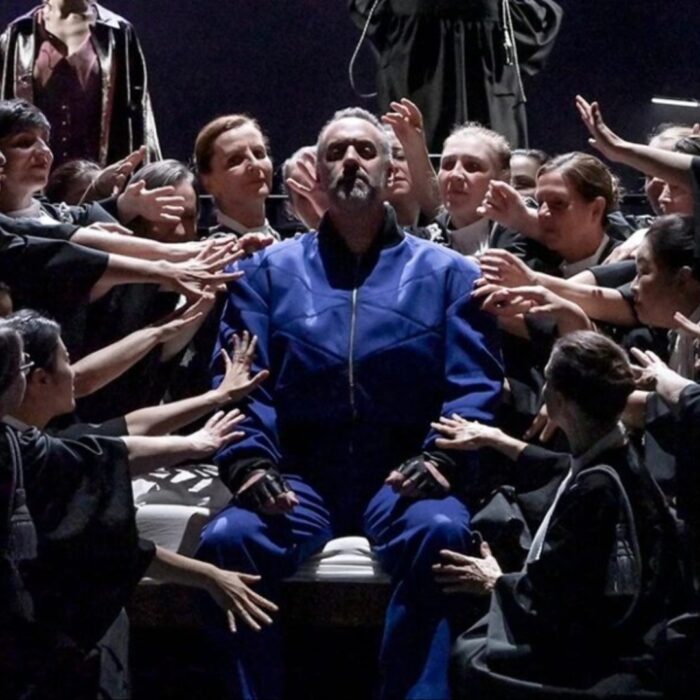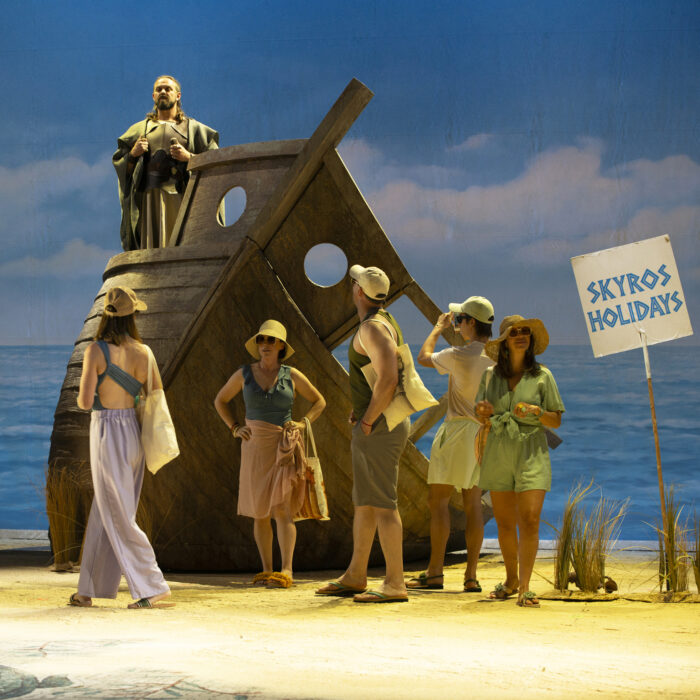
Criticism on Fridays: South African Opera Singers in Crisis
Power & Pride in the Voices from the Abandoned Stages
By Polina Lyapustina(Photo: Im4theArts)
Every Friday, Polina Lyapustina delivers a short essay on some of the most sensitive topics in the industry with the intent of establishing a dialogue about the opera world and its future. The choice of topics discussed, how they are researched, and how they are portrayed is conducted independently of OperaWire’s editors.
Today I watched numerous videos of South African opera singers on Youtube. Classics, ethnic songs, pieces by modern African composers — so original and fresh in my ears. When did we get so limited forgetting to discover all those little treasures around the globe? What needs to happen for us to start exploring again?
The answer – Bad news. It is the driver of everything in our world. It forces us to reflect and react. It forces the best of us to push forward for change.
And now, I’m about to give you some bad news.
In a disturbing letter received by OperaWire this week, soprano Marieke de Koker shared her deep concerns about the future and well being of South African singers. But in that same letter, she expressed so much pride. And when I read it, just a couple of days ago, I could barely believe it.
No other source has been ever checked so thoroughly. How can people be so strong and powerful, and being at the same time so exhausted and broken? So loud and so invisible for their government?
But all of this is absolutely real in South African people.
South Africa has a unique operatic story and heritage. The motherland to numerous opera stars — sopranos Pretty Yende and Pumeza Matshikiza, baritone Njabulo Madlala, bass-baritone Musa Ngqungwana, and tenor Levy Sekgapane, the country is a home for very few operatic institutions. So, most singers started their way as chorus members before heading abroad (commonly to the UK) to continue their musical education. It is very unlikely they came back since, even before the COVID crisis, as the number of venues for performances is limited.
This year, the situation has worsened. The Brooklyn Theater in Pretoria closed down completely. With the online streaming still running, the beautiful theater has been torn out and sold. Isango Ensemble has been unable to tour and perform. The Cape Town Opera has produced only one filmed production and one live production (to only 250 people in the audience).
The Christmas concert ticket sales at Jozi Opera were so low that even the live-stream was canceled. The South African State Theater offered virtual streaming from the archives to help the institution survive but hasn’t provided any help to their artists.
At the beginning of this year, four months before the pandemic hit South Africa, the local artists rose their voices to call out the failures of the South African government in the arts and culture sector.
Soprano Sibongile Mngoma wrote an open letter to the Minister of Arts and Culture. Having had no response, she put it on Facebook, starting a group called Im4theArts, which exploded to more than 5,000 members in just a week.
Posts on the page reflect deep anger that has been simmering in the arts and culture sectors for decades. According to the press release, some of the stories on the page detailing their abuse are heartbreaking. “We have had enough,” is a common cry on the page.
When, eventually, the reply of the minister was received, it left artists “with more questions than answers.” The struggles were called real, duties were promised to be fulfilled, but no actions were offered.
The next step was an Open Letter to the President, in which they stated that the artistic community felt the Department of Sports, Arts and Culture had lost legitimacy, and asked the president to “clearly, explicitly and visibly answer our question: What is the mandate of the DSAC? The lack of transparency, plainly written rules, and processes and of accountability, and of engagement at any level, is appalling, intolerable and, at worst, illegal.”
To get public support, SA artists took to the streets in February and a few more times before the COVID crisis began. Several meetings with DSAC were held as well. But nothing has changed for the musicians.
As the logical result, at the beginning of this week, the South African mass media reported that about half of SA’s live music workers could leave the industry forever.
Here are just several highlights of the nation-wide research by SA Cultural Observatory:
- Forty-one percent of the musicians surveyed report selling musical instruments and equipment to pay their bills. Others live on loans that need to be repaid.
- From March to very recently, most of them stopped and 90 percent of the live music industry members lost their income from COVID-19.
- The audience is often rural and elderly, with limited access to digital networks for live streaming music, so online events cannot pay out even the simplest production cost.
- Many employers needed to terminate short-term contracts (23 percent), reduce employees (13 percent) or reduce salaries (18 percent). Only six percent said they could continue to pay everyone they work with.
- Only seven percent reported successful applications for support mechanisms for various SMEs, and only 21 percent for relief funding from the Ministry of Sport, Arts, and Culture.
“I lost everything. All income, accommodation – all,” one respondent said. But it’s not a unique story. And this is only made worse when you realize that this single tragic experience is common throughout this society.
Today, these people — professional musicians from the country of amazing traditions and culture, which have given so much to the world of opera, are deprived of the most basic needs. For some of them, life is no longer an obvious and rightful choice. In just a year, the world opera community, mired in its own problems, forgot about the homeland of its favorite singers. And today, we risk losing them. Their culture, their talents, and unfortunately, their lives.
And yet, they still sing. Not relying on others, SA singers will try to raise some money for those who are in the biggest trouble on December 23rd. Geoff and Linda Hirt donated the initial amount that will be given to the performers of the concert. All the donations will be head to a relief fund that will assist South African classical singers in need, all of whom would be able to submit an application form after the concert.
There is a lot of power and pride in their voices. Voices that must be heard.


